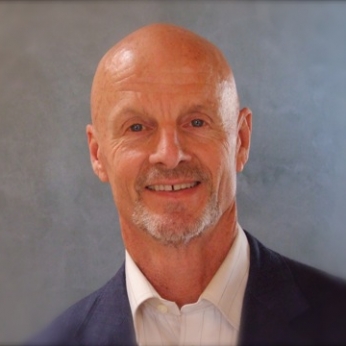
Tim Burns
Educator, Author, Consultant
Description
Tim Burns is an educator and author whose background includes over thirty years of experience as high school teacher, counselor, First Offender Program facilitator, adolescent and family drug-treatment program director, university instructor, and professional development specialist. He taught for four years as a member of the Alcohol and Drug Abuse Studies Institute faculty at the University of New Mexico, while serving as program director at St. Vincent Hospital Family Recovery Center in Santa Fe, New Mexico. Since 1986, he has taught graduate and undergraduate courses for the Division of Extended Studies, Adams State College, Alamosa, Colorado, on topics ranging from stress management and wellbeing, and resiliency in children, to the amazing brain, and facilitation skills for group counseling.
Over the years, Tim has provided conference keynote addresses and professional development workshops to over three thousand schools, businesses, agencies, and organizations throughout North and South America, and in numerous other countries throughout Africa, Asia, Europe and the Middle East.
Tim is the author of three books: Anatomy of a Crisis: The Effects of Alcohol and Other Drugs on the Brain; Our Children, Our Future; and From Risk to Resiliency, as well as several popular resource manuals and curricula. He is an award-winning artist and provided the illustrations for the book, WorldWords, by Victor La Cerva, M.D. He holds a black-belt in Aikido, a modern Japanese martial art devoted to neutralizing aggression and redirecting conflict. He is the father of three talented, creative daughters, and the proud grandfather of four. He and his wife, Linda, make their home in beautiful Santa Fe, New Mexico USA.
Workshops
-
THREE BRAINS ARE BETTER THAN ONE: Mindful Integration of Brain, Body, and Heart Intelligences for Engaged, Enhanced Learning, Creativity and Health,
Recent discoveries about the brain reveal an astonishing three pound universe of possibilities inherent in each of us, with more knowledge having been acquired in the last decade than in the past 150 years. From environmental enrichment, brain plasticity, neurogenesis, to “mirror neurons,” epigenetics, and the remarkable “upgrades” that take place in the teen brain, neuro-scientific discoveries continue to revolutionize our understanding of the brain, and along with it the nature of human possibility. In addition, recent discoveries in the field of neurocardiology point to the human heart as not simply a pump, but as an "organ of vast intelligence." Moreover the body itself has what Michael Gerson, M.D., author of the book, The Second Brain, refers to as a vast system of bodily intelligence. In effect, we have not one but three separate yet highly integrated brains. When it comes to learning, health, performance, and creativity, three brains are better than one!
Cost: Negotiable, depending on length
Duration: 60 minutes to 6 hours
Target Audience: PreK-12th grade teachers and staff
-
ENERGIZING STRATEGIES FOR ENGAGED LEARNING: Using Movement, Rhythm and Play to Facilitate Engaged Classroom Learning,
It comes as no surprise that children today exercise, move, and play outdoors less often than any previous generation, while at the same time engaging in ever more screen-time and “virtual reality.” The troubling result of this “evolutionary experiment” can be seen in the rise of problems related to attentional focus, concentration, impulse control, and in-depth learning. Movement, rhythm, and creative play are the primary mechanisms by which the dynamic attentional systems of the brain self-organize during childhood and come to fruition during the teen years. This part of our program offers a survey of theory and research, while exploring a variety of movements—including those involving rhythm and play—that serve to engage and enhance the brains of children, teens and, yes, even adults.
Cost: Negotiable, depending on length
Duration: 60 minutes to 3 hours
Target Audience: PreK-12th grade teachers and staff.
-
THE SCIENCE OF MINDFULNESS PRACTICE IN THE SCHOOL: Research and Practices for Staff and Students
Mindfulness can be described as a state of active awareness and open attention on the present. Commonly associated with certain practices common to the world’s great religions, in the past 30 years scientific investigations have produced a large body of evidence demonstrating the efficacy of such practices on the ability to mindfully focus and attend, the starting place for all learning. As well, hundreds of studies point towards an enhancement of psychological wellbeing and physical health through mindfulness practices.
In the realm of education and learning, research outcomes demonstrate the effectiveness of mindfulness-based practices in schools, as a result of which there is growing interest in providing an opportunity for both staff and students to learn the whys and the hows.
In this presentation, designed with staff (and students!) in mind, the theory, research and, most importantly, the specific practices associated with mindfulness states are explored along with the relationship between positive changes that can occur in both the central nervous system (i.e., the brain) and the autonomic nervous system (ANS). In addition, we look at Mindfulness-Based Stress Reduction, a thoroughly documented and exciting protocol for balancing and harmonizing the autonomic nervous system.Cost: Negotiable, depending on length
Duration: 60 minutes to 6 hours
Target Audience: PreK-12th grade teachers and staff. Student presentations available as well.
-
THE AMAZING TEEN BRAIN: A Work in Progress
Scientists increasingly refer to the teen brain as a “work in progress.” This is due to recent discoveries that reveal several important areas of the brain that undergo significant “upgrade,” beginning with puberty and continuing for another decade or more. Attendees learn the basic architecture of the teen brain, the meaning of the significant reorganization taking place, and how best to support these changes. Peak Performance brain tips are provided designed to help adolescents improve and enhance brain function. These include the roles of diet and hydration, movement and exercise, downtime and sleep; the damage caused by binge drinking; stress management; mindfulness meditation practices and brain function; and the role of art and music in enhancing higher cognitive function. Teachers, counselors, therapists, social workers and parents will take away great information, the latest research, and tools that can be immediately applied in supporting adolescent development.
Cost: Negotiable, depending on length
Duration: 60 minutes to 3 hours
Target Audience: Grade 5-12 teachers and students.
-
MOVING STUDENTS BEYOND RISK TO RESILIENCY: A Protective-Factor, Social-Emotional Approach to Student Wellbeing and Academic Success.
For the last half-century, the phenomenon of human resiliency -- the innate capacity to bounce back from adversity and creatively adapt to stress -- has been systematically studied and it’s underpinnings revealed through research in the behavioral- and neurosciences. The result of this protective factor research has been to provide policy-makers, educators and preventionists with clearer guidelines on how best to affect positive youth development. When applied consistently and mindfully in the school setting these strategies can positively affect school climate, student well-being and academic success. The session focuses on the three key protective factors common to virtually all the research conducted in the past few decades.
Cost: Negotiable, depending on length
Duration: 60 minutes to 3 hours
Target Audience: PreK-12th teachers and staff
-
MINDING THE MIND: How Kindness, Happiness and Positive Emotions Improve Brain Function and Optimize Wellbeing and Health
One of the most exciting and important fields of emerging research—one that brings together neuroscience, “heart intelligence,” Eastern-based mindfulness meditation and Western-based psychology methodologies—is Positive Psychology. In the past 25 years or so contributions from various information streams, including Health Realization/Psychology of Mind, Psychological Hardiness, Happiness, Flow, Growth Mindset Versus Fixed-Mindset, Learned Optimism, provide us with a roadmap to enhanced health, wellbeing and brain function through a variety of proven practices. Providing teens with this information can have a profound and possibly even lifelong affect on their social, vocational, and personal wellbeing. The presentation provides attendees with an overview of several of these potentially life-altering models and practices
Cost: Negotiable, depending on length
Duration: 60 minutes to 3 hours
Target Audience: PreK-12th teachers and staff
Topics
- 3-brains
- learning
- Mindfulness
- movement
- play
- resilience
- stress-hardiness
- teen-brain
